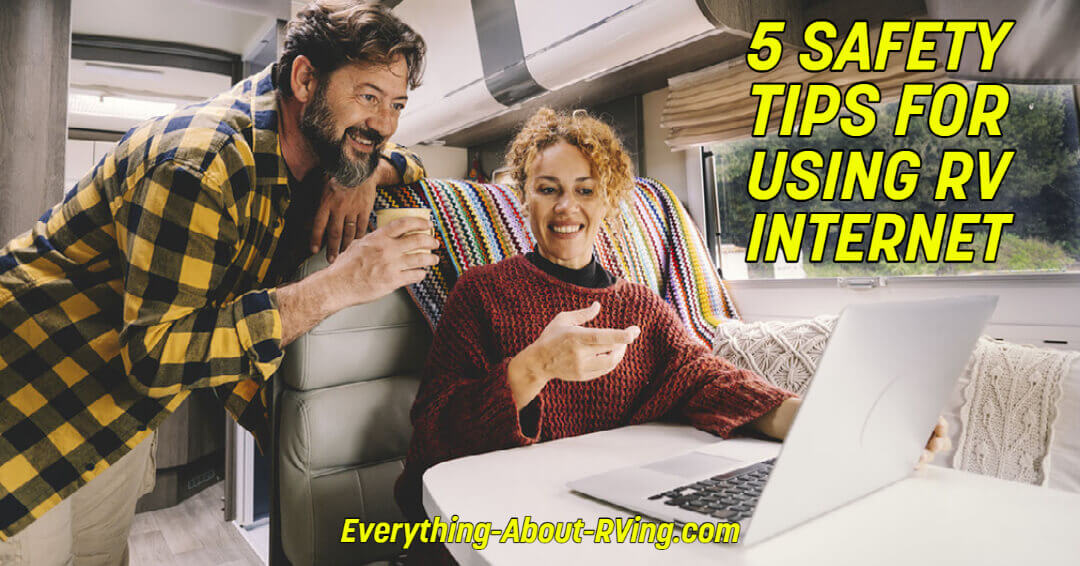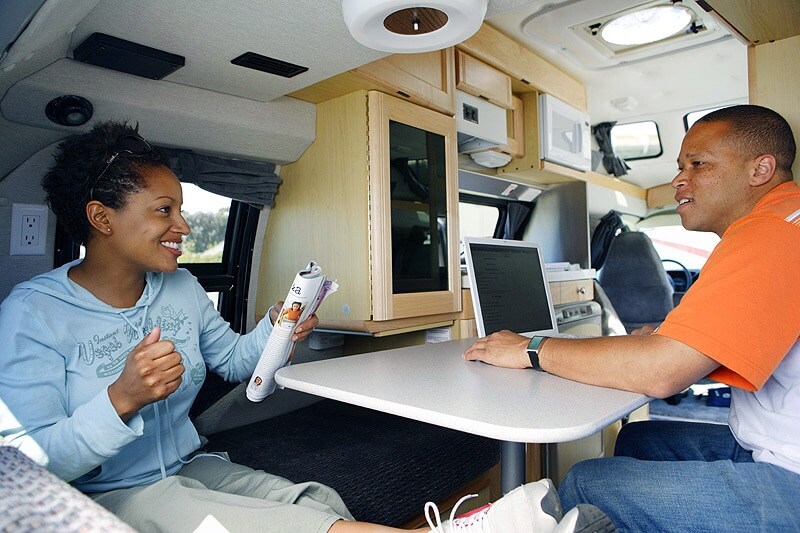- Home Page
- RVing Tips & Tricks
- Rv Internet on the Road
5 Safety Tips for Using RV Internet on the Road
By SinglePoint Communications
These tips will help you to safely use RV internet on the road
Whether you have RV internet or not, being smart about your internet use as you travel can help mitigate a variety of risks. Wi-Fi hotspots, especially those in public places, are breeding grounds for snoops who want to steal your personal information. When set up properly, wireless Wi-Fi for RV users can offer you and your family some added security, but it always pays to be overly safe than sorry.
When you hit the road, you don’t have to give up the World Wide Web to keep your information safe. Just practice the following simple tips whenever you connect:
1. Secure any device that can connect to the internet.
Use a strong firewall, reputable antivirus software, comprehensive malware program and a trusted VPN (virtual protection network) service to keep your laptop, tablet and cell phone safe. However, it’s not enough to simply invest in these programs. You must keep them up to date to ensure their effectiveness.
2. Use only legitimate hotspots.
If you don’t have a Wi-Fi for RV system and you need to get online, it may be tempting to use the first hotspot you find in a public location. Instead, take the time to find a hotspot you can attribute to a business or someone you know. Before you even attempt to connect, ask for the name of the establishment or household uses for the hotspot or network. Keep in mind that the most trusted networks are those that require a password to connect. Be wary of any hotspots that require you to input personal information before allowing you to connect.
3. Back up sensitive and important data.
If you use your laptop to store pictures, work information, projects, and other important data, back up these items regularly onto waterproof, encrypted USB flash drives or an external hard drive. (Don’t email the data to yourself). Then make a backup of the backup. Even with the safest mobile internet for RV setup or the best security programs installed, you can never be too safe.
4. Communicate via Web-based services.
If you use an email client like Outlook or Thunderbird to check your messages, use your email provider’s Web-based service when you travel (even if you have RV internet) because email clients don’t always offer the security you need. If your email ends with “@gmail.com,” for example, your email provider is Gmail. If you use an email address provided to you through your employer or home internet provider, ask the IT department or customer service department about accessing the Web-based service if you’re not sure how. For extra security, use “https” instead of just “http” when typing in the email provider’s URL; the extra S at the end (for SSL over HTTP) keeps your login information and emails encrypted.
5. Remember to disconnect.
It’s common and convenient to keep your laptop and other mobile devices running even when you’re not using the internet. Whenever you’re done online, manually turn off the device’s WiFi connection. The same goes for Bluetooth. Failing to disconnect is like leaving the front door of your home unlocked when you’re on vacation. While turning off the Wi-Fi seems like a hassle, keep in mind: Hackers can’t remotely break into computers and mobile devices that aren’t connected to the internet.
About The Author
SinglePoint Communications offers innovative solutions for creating a mobile Wi-Fi hotspot in personal RVs, boats and more. SinglePoint offers an ever-growing suite of cutting-edge mobile Wi-Fi solutions that include Wi-Fi In Motion, everything you need to set up internet WiFi for traveling. It comes with a roof- or window-mount antenna, a router, power cords and more. SinglePoint’s all-in-one mobile internet for RV kit makes it easy for technological laypeople to tap into their cell phone networks to enjoy great internet coverage while on the road.




